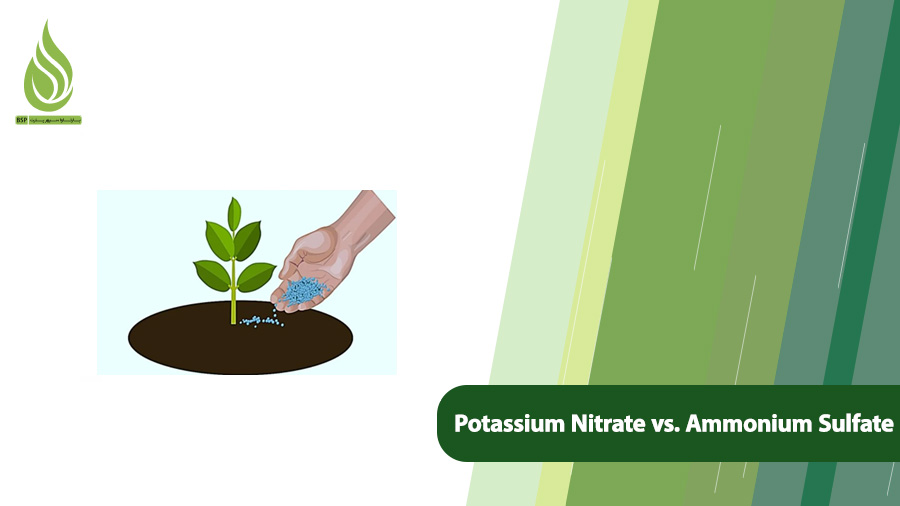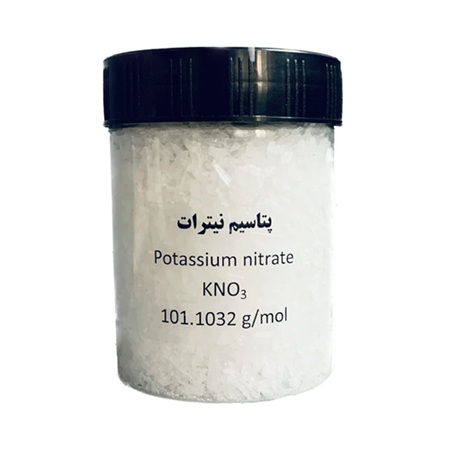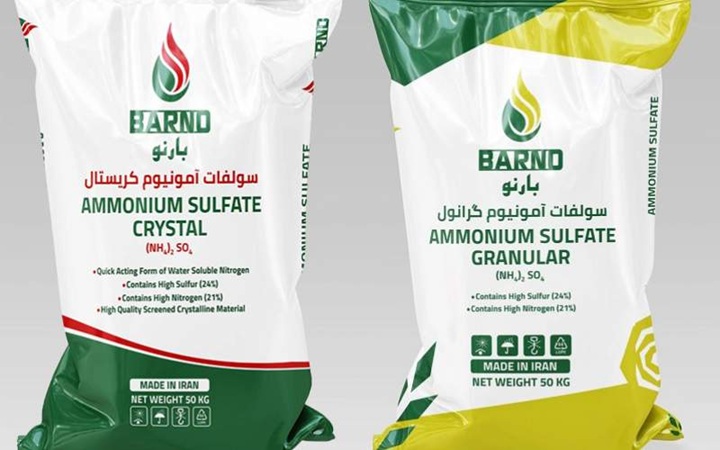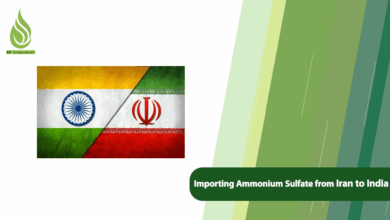
Potassium Nitrate vs. Ammonium Sulfate: Which One Is Better?
In modern agriculture, choosing the right fertilizer can make all the difference in crop yields, soil health, and overall farm efficiency. Potassium nitrate and ammonium sulfate are two widely used chemical fertilizers that both provide essential nitrogen, a critical nutrient for plant growth. However, they differ in their composition, effects on soil, absorption rates, and ideal applications. Using these fertilizers at the right time and in the proper way can significantly enhance agricultural productivity. To make informed decisions, it’s important to understand how nitrogen works in each fertilizer, considering factors like the type of crop you’re growing and its growth stage.
This comparison explores the unique characteristics of potassium nitrate and ammonium sulfate, offering valuable insights for farmers and gardeners. Whether you’re managing alkaline soils common in arid regions like India or aiming to boost fruit quality, this guide will help you choose the best option.
Introducing Potassium Nitrate and Ammonium Sulfate Fertilizers
Among the various agricultural fertilizers, compound fertilizers made from combinations of nutrients are particularly popular due to their efficiency in delivering multiple elements at once. Examples include potassium nitrate, ammonium sulfate, diammonium phosphate, calcium nitrate, ammonium nitrate, magnesium sulfate, and more. We’ve previously compared ammonium sulfate and ammonium nitrate in another article, noting that both contain nitrogen, a high-demand nutrient used throughout different plant growth stages. Now, let’s focus on comparing potassium nitrate and ammonium sulfate.
Ammonium sulfate, with the chemical formula (NH₄)₂SO₄, is a compound that supplies nitrogen in the ammonium form along with sulfur (as sulfate). On the other hand, potassium nitrate (KNO₃) is a chemical compound consisting of potassium (K⁺) and nitrate (NO₃⁻), serving as a simultaneous source for these two elements. Both are recognized as high-consumption nutrient fertilizers in agriculture, but they vary in how they deliver nitrogen, their impact on soil, absorption speed, and practical uses.
Nitrogen fertilizers like these play a pivotal role in global crop production, with demand driven by the need to improve both yield and quality in staple crops. In regions with intensive farming, such as parts of the United States and the Middle East, these fertilizers help address nutrient deficiencies that can limit productivity. Understanding their differences ensures farmers apply them effectively, minimizing waste and environmental impact.
Key Features of Potassium Nitrate

Potassium nitrate (KNO₃) is a chemical fertilizer containing about 13% nitrogen and 46% potassium oxide (K₂O). It serves as an excellent source of both nitrogen and potassium, making it highly effective for producing high-quality fruits and vegetables. This fertilizer dissolves quickly in water and is readily absorbed by plants, providing rapid nutrition.
It enhances the color, sugar content, and size of produce while promoting steady plant growth. Potassium nitrate is particularly useful during the transition from flowering to fruiting, positively affecting both the quantity and quality of yields. Crops that benefit include tomatoes, peppers, cucumbers, potatoes, and corn. The optimal time to apply potassium nitrate is during the flowering and fruiting stages.
Nitrate forms of nitrogen, like those in potassium nitrate, are immediately available to plants, supporting quick uptake in high-demand periods. This makes it ideal for crops requiring fast nutrient delivery to maximize fruit development. Additionally, potassium nitrate is chloride-free, which is beneficial for chloride-sensitive plants, reducing the risk of toxicity in certain soils. In sustainable agriculture practices, it’s often used in drip irrigation systems due to its high solubility, helping conserve water while delivering precise nutrition.
Key Features of Ammonium Sulfate
Ammonium sulfate ((NH₄)₂SO₄) is a nitrogen fertilizer that provides approximately 21% nitrogen and 24% sulfur. It’s renowned for its positive effects on both soil and plants, especially in alkaline soils where it helps improve nutrient availability.
This fertilizer promotes root growth, enhances fruit quality, and increases protein content in field crops. It also improves soil structure and boosts water-holding capacity, making it valuable in drier climates. Crops that respond well include rice, legumes, wheat, leafy vegetables, dates, and other fruit trees, particularly those in alkaline soil conditions.
It’s worth noting that ammonium nitrogen acts more slowly than nitrate nitrogen, so plants may experience a slight delay in uptake. However, this form offers more sustained nutrition. Ammonium sulfate is better suited for alkaline or saline soils, as it mildly reduces soil alkalinity and increases access to micronutrients and other soil elements.
For maximum impact, apply ammonium sulfate during the early growth stages of plants. Ammonium-based products like ammonium sulfate have the greatest potential to acidify soil, which is advantageous in high-pH environments common in many agricultural areas in the Middle East and India. This acidification helps unlock bound nutrients, such as iron and phosphorus, preventing deficiencies that can stunt growth. Ammonium sulfate is recommended for soils low in sulfur, where it supports enzyme functions and chlorophyll production, leading to healthier, more resilient crops.

Comparing Ammonium Sulfate and Potassium Nitrate
Ammonium sulfate and potassium nitrate are both high-demand, multi-purpose fertilizers in agriculture, but they differ significantly in chemical composition, soil effects, and nutritional impacts on plants. Below, we break down the key comparisons:
- Composition: Ammonium sulfate combines ammonium nitrogen with sulfur, while potassium nitrate pairs nitrate nitrogen with potassium. Both supply nitrogen, but the type of nitrogen and the secondary element vary, influencing their suitability for different needs.
- Nitrogen Form and Speed: In potassium nitrate, nitrogen is in the nitrate form, which is fast-acting and ideal for later growth stages when plants need quick nutrition. Ammonium sulfate’s ammonium nitrogen is absorbed more gradually, providing steady release. Note that crystalline ammonium sulfate releases faster than granular forms.
- Nitrogen Content: Ammonium sulfate contains around 21% nitrogen, compared to 13% in potassium nitrate, making it a more concentrated nitrogen source.
- Application Timing: Ammonium sulfate excels in early growth phases (before flowering) for vegetative development and sulfur supply. Potassium nitrate is better for flowering and fruiting to improve color, flavor, and product quality.
- Soil pH Impact: Ammonium sulfate has acidifying properties, making it suitable for alkaline soils. Potassium nitrate is neutral and works well across most soil types. Given that a large portion of agricultural soils in regions like the Middle East are alkaline, ammonium sulfate effectively lowers soil pH and balances soil chemistry.
- Solubility and Use Methods: Both are water-soluble, but potassium nitrate has superior solubility, perfect for drip irrigation and foliar sprays. Ammonium sulfate can be applied via soil incorporation or irrigation.
- Additional Benefits: The sulfur in ammonium sulfate aids protein synthesis and enhances plant aroma. Potassium in potassium nitrate boosts sugar levels, color, and fruit shelf life.
- Specific Suitability: Potassium nitrate is chloride-free, better for chloride-sensitive crops. Ammonium sulfate takes priority in sulfur-deficient soils.

To summarize these differences in a clear format:
| Feature | Ammonium Sulfate ((NH₄)₂SO₄) | Potassium Nitrate (KNO₃) |
|---|---|---|
| Primary Elements | Nitrogen + Sulfur | Nitrogen + Potassium |
| Nitrogen Form | Ammonium | Nitrate |
| Chemical Formula | (NH₄)₂SO₄ | KNO₃ |
| Water Solubility | High | Very High |
| Impact on Soil pH | Reduces pH (Acidifying) | Neutral |
| Absorption Speed | Medium | Fast |
| Effect on Plant Growth | Boosts Vegetative Growth | Enhances Reproductive Growth (Fruit and Flowers) |
| Ideal for Soils | Alkaline | Various Types |
This table highlights how each fertilizer addresses specific agricultural challenges. For instance, potassium fertilizers like potassium nitrate are applied to enhance crop quality, while nitrogen sources like ammonium sulfate support foundational growth and soil amendment. Choosing between nitrate and ammonium forms depends on the immediacy of nutrient needs, with nitrates offering quick availability. In practice, integrating both based on soil tests can optimize outcomes, but over-reliance on one without monitoring can lead to imbalances.
Beyond these core differences, consider environmental factors. Ammonium sulfate’s acidifying effect can help in managing soil salinity, a growing issue in irrigated farmlands. Potassium nitrate, being neutral, avoids altering pH, which is crucial in already balanced soils to prevent unintended shifts. Both contribute to sustainable agriculture by reducing the need for multiple applications when used correctly.
Purchasing High-Quality Ammonium Sulfate

In this comparison of two nitrogen-containing fertilizers, ammonium sulfate and potassium nitrate, we’ve highlighted their strengths.
- If your goal is to promote vegetative growth and supply sulfur, ammonium sulfate is an excellent choice.
- If you’re focused on improving fruit and flower quality and quantity, potassium nitrate stands out.
That said, no fertilizer is universally “the best”; the ideal one matches your specific crop conditions and needs. Relying on soil analysis, plant nutrient monitoring, and expert advice ensures better results and minimizes risks.
If you’re looking to buy high-quality ammonium sulfate fertilizer, Barsava Sepehr Part is one of the most reputable sources for crystalline and granular forms. We offer products meeting global standards, enabling direct, intermediary-free purchases for farmers and orchard owners.
To obtain the best Iranian ammonium sulfate fertilizer, contact us. Our products are available in bulk quantities. For smaller volumes, visit trusted agricultural supply stores nationwide.
Ammonium sulfate fertilizer continues to gain traction in 2025 for its role in addressing soil acidity and nutrient deficiencies. By incorporating it into your regimen, you can enhance soil health, boost yields, and support long-term farm sustainability. Always prioritize soil testing to tailor applications and maximize benefits.

